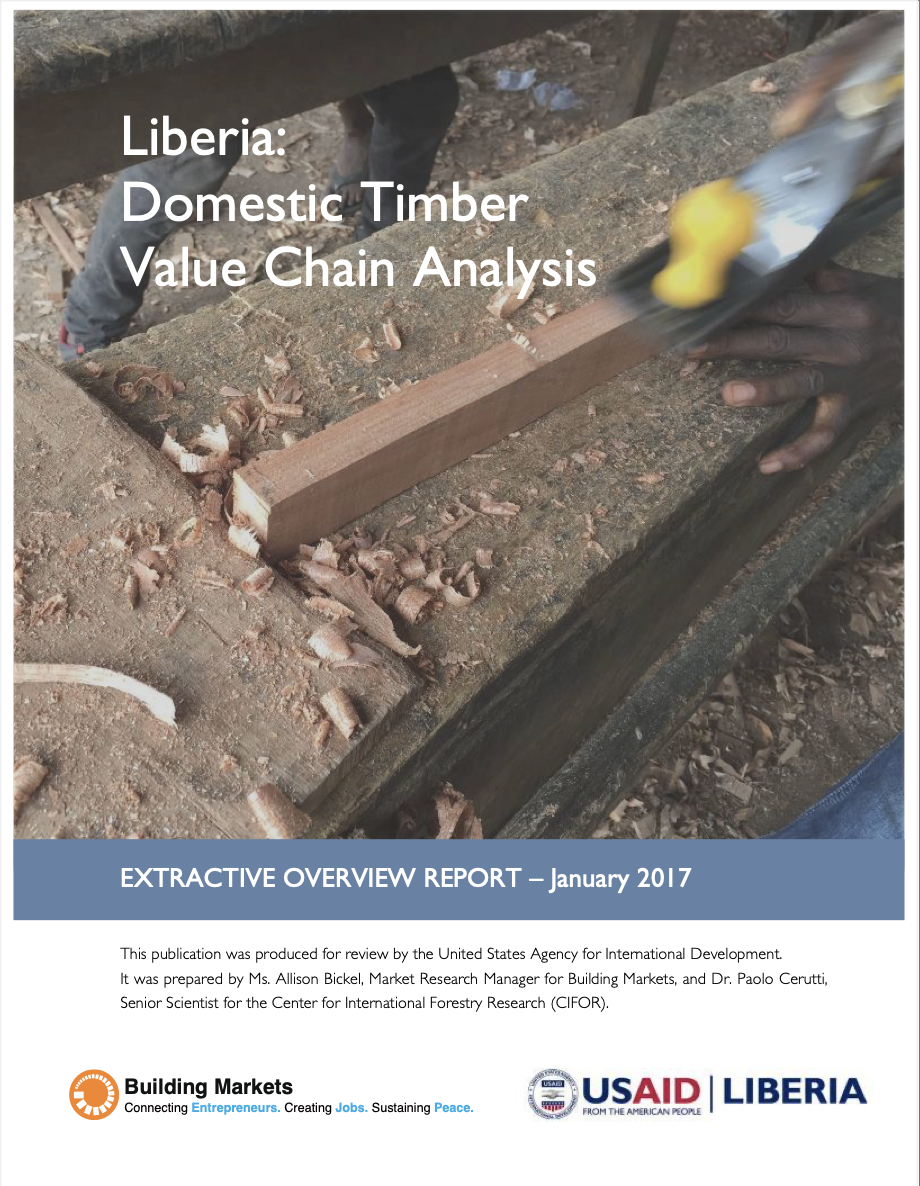Liberia: Domestic Timber Value Chain Analysis
Liberia: Domestic Timber Value Chain Analysis
2017
This report provides a quantitative and qualitative evaluation of the Liberia domestic timber market. While the country has developed and implemented significant regulations, laws, and reforms since 2006 around the export-oriented, large-scale industrial forestry sector, timber produced through small-scale logging operations for the domestic market has largely been ignored. As a result, the sector has grown informally, unrecorded in official statistics, with timber produced without valid permits.
Building Markets, with the support of the Forestry Development Authority (FDA), the Center for International Forestry Research (CIFOR), and key local partners, conducted a detailed value chain analysis of domestic timber in Liberia. The study captures how much sawn-timber is produced and transported to urban markets, the economic value of timber and the number of actors along the supply chain, the direct and indirect socio-economic benefits of chainsaw logging, and the dynamics of downstream activities in the woodworking sector. The data and analysis map and define the domestic timber value chain, providing a platform for policy and regulation to improve inefficiencies, monitor environmental impacts, and promote equitable linkages between the informal and formal economies.

